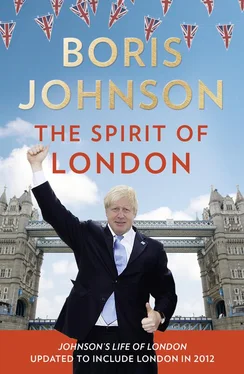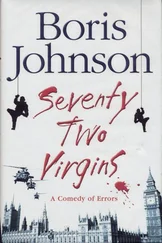Talk about value for money.
By the end of the Games we had paid for major improvements to London transport; we had built thousands of new homes; opened the biggest new green park in Britain for 150 years and were well on the way to regenerating large parts of East London. We had beamed positive images of Britain around the world and filled people with a general sense of togetherness and love-your-neighbour. What else is politics for? If you reckon that the £9.3 billion has been spent over the best part of ten years, it must rate as one of the best investments by any government ever.
We learned all sorts of things about London and Britain, truths that we had half-forgotten. After the shambles of the Dome in 2000, we discovered that we could after all put on a great show, and deliver a big and difficult project – and hosting the Olympics is the single biggest logistical feat you can ask any country to pull off, short of going to war. That is an important lesson for all the cynics who wonder whether we have the capacity to deliver the new infrastructure projects the country so badly needs (a new hub airport springs to mind, or a new generation of nuclear power stations).
We saw the importance of making the public and private sector work together, and the Games were a triumph of collaboration between some very bright officials and some of the cleverest businessmen I have ever met.
We saw how this country and much of the world has changed for the better, in our lifetimes. Saudi Arabia fielded their first female athlete. British women took the centre stage, and in some ways eclipsed the men. ‘Jess Ennis is so cool,’ I heard a thirteen-year-old boy say. He didn’t just mean that he fancied her, though maybe he did. He meant that she was remarkable, admirable, a role model. That is a development.
The Paralympics were by common consent the best and most dramatic ever staged, with their own stars and record-breakers. It would not have been possible, in my childhood forty years ago, to imagine huge crowds of Londoners cheering with passionate sincerity and acclaim at a contest between athletes with prosthetic limbs. That is also a development. Yes, I am sure that Tanni Grey-Thompson would tell me there is still a long way to go, but progress has been made.
In the exuberance and generosity of the reaction, the Games also brought out something of the character of London. It is in many ways an English city. It has quintessentially English pubs and gardens and heavenly parks. It has whistling builders and fatalistic-looking passengers sitting on top of heaving red buses; and suburban shopping arcades with garish vinyl signs advertising curry or fried chicken; and softly swearing taxi drivers; and church bells that still toll on a Sunday morning from 150 beautiful steeples that rise over the familiar granite and yorkstone pavements spangled with rain and vomit from the night before.
London is the capital of England, of Britain, of the United Kingdom. But the Olympics reminded us that it is also a global city.
When those teams of athletes arrived this year, there were 50 nations who had home teams in London of more than 10,000 each. There is no other city like that, save possibly New York. In that sense the Games were a metaphor – or an extension – of the function London has played over the last few centuries: the arena, the stadium, the venue where talented people can come and compete, and make their name.
In the enthusiastic response of that London crowd – the vehement (and amazingly unaggressive) British patriotism that was shown by people from all races and backgrounds, we saw how the city takes people in and makes them its own. This is the sign of a confident urban culture, to take people from all over the world and make them Londoners, in vocabulary, accent, loyalty and even in their sense of humour. That is the spirit of London.

London Bridge London Bridge Boudica Hadrian Mellitus Alfred the Great William the Conqueror Geoffrey Chaucer Richard Whittington William Shakespeare Robert Hooke Samuel Johnson John Wilkes JMW Turner Lionel Rothschild Florence Nightingale and Mary Seacole WT Stead Winston Churchill Keith Richards The Midland Grand Hotel Epilogue: Mo Farah Acknowledgements About the Author Also by Boris Johnson Copyright About the Publisher Sundry interesting London inventions have been interspersed in the text
Still they come, surging towards me across the bridge.
On they march in sun, wind, rain, snow and sleet. Almost every morning I cycle past them in rank after heaving rank as they emerge from London Bridge station and tramp tramp tramp up and along the broad 239-metre pavement that leads over the river and towards their places of work.
It feels as if I am reviewing an honourable regiment of yomping commuters, and as I pass them down the bus-rutted tarmac there is the occasional eyes left moment and I will be greeted with a smile or perhaps a cheery four-letter cry.
Sometimes they are on the phone, or talking to their neighbours, or checking their texts. A few of them may glance at the scene, which is certainly worth a glance: on their left the glistening turrets of the City, on the right the white Norman keep, the guns of HMS Belfast and the mad castellations of Tower Bridge, and beneath them the powerful swirling eddies of the river that seems to be green or brown depending on the time of day. Mainly, however, they have their mouths set and eyes with that blank and inward look of people who have done the bus or the Tube or the overground train and are steeling themselves for the day ahead.
This was the sight, you remember, that filled TS Eliot with horror. A crowd flowed over London Bridge, so many, reported the sensitive banker-turned-poet. I had not thought death had undone so many, he moaned; and yet ninety years after Eliot freaked out the tide of humanity is fuller than ever. When I pass that pavement at off-peak times I can see that it is pale and worn from the pounding, and that not even the chewing gum can survive the wildebeest tread.
The crowd has changed since Eliot had his moment of apocalypse. There are thousands of women on the march today, wearing trainers and carrying their heels in bags. The men have rucksacks instead of briefcases; no one is wearing a bowler hat and hardly anyone seems to be smoking a cigarette, let alone a pipe. But London’s commuters are still the same in their trudging purpose, and they come in numbers not seen before.
London’s buses are carrying more people than at any time in history. The Tube is travelling more miles than ever, and more people are riding on the trains. It would be nice to reveal that people are ditching their cars in favour of public transport; and yet the paradox is that private motor vehicle transport is also increasing, and cycling has gone up 15 per cent in one year.
As we look back at the last twenty years of the information technology revolution, there is one confident prediction that has not come true.
They said we would all be sitting in our kitchens in Dorking or Dorset and ‘telecottaging’ down the ‘information superhighway’. Video link-ups, we were told, would make meetings unnecessary. What tosh.
Whatever we may think they ‘need’ to do, people want to see other people up close. I leave it to the anthropologists to come up with the detailed analysis, but you only have to try a week of ‘working from home’ to know it is not all it’s cracked up to be.
You soon get gloomy from making cups of coffee and surfing the Internet and going to hack at that piece of cheese in the fridge. And then there are some profounder reasons for this obstinate human desire to be snuffling round each other at the water cooler. As the Harvard economist Edward Glaeser has demonstrated, the move to the city is as rational in the information revolution as it was in the Industrial Revolution.
Читать дальше













